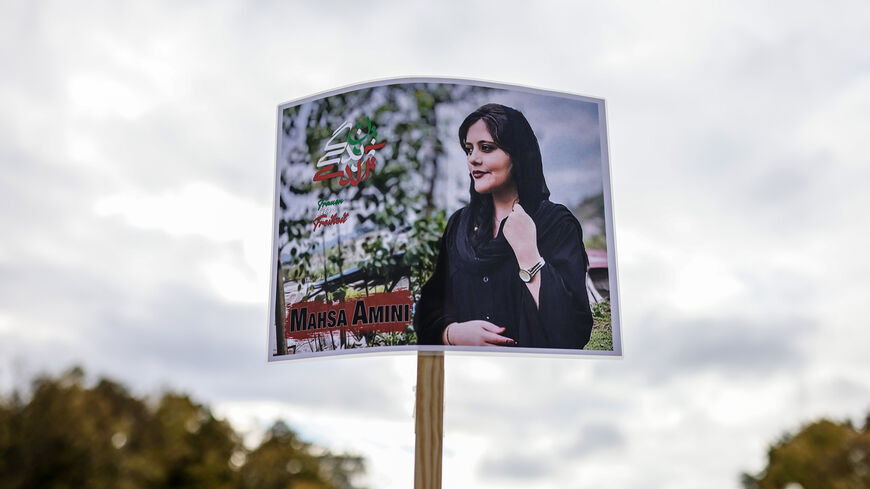
EU sanctions over Iran’s clampdown on dissent unsettled Iranian authorities, which are grappling with one of the biggest domestic challenges they have faced since the 1979 revolution.
The spokesperson for Iran’s Foreign Ministry, Nasser Kanani, condemned sanctions slapped by the Council of the European Union on a number of Iranian entities and officials in response to their involvement in repressive measures against protesters at home.
Kanani dismissed the “unilateral” sanctions as “unconstructive,” saying they violated international law, were a case of obvious meddling in Iran’s internal affairs and were adopted on certain political purposes and baseless information. According to the Kanani, Tehran will soon prepare its own “sanctions in kind” against the relevant European individuals and entities.
On Oct. 17, the EU announced travel bans and asset freezes on four Iranian organizations, including the “morality police,” in whose custody Mahsa Amini, 22, lost her life last month, triggering nationwide anti-government unrest. The EU punitive measures targeted 11 individuals, among them police commanders as “perpetrators of serious human rights violations.” Iran’s Minister of Information and Communication Technology Issa Zarepour was also placed on the blacklist over the ongoing internet restrictions, which have severely choked the flow of information coming out of the country during the protests.
Iran’s condemnation of the new sanctions came as the unrest had already entered a second month, marking the longest period of nonstop daily protests after the 1979 revolution. The government’s heavy-handed response has so far claimed 215 lives, according to the Norway-based Iran Human Rights organization. The tally includes 27 minors, as the protests have seen new generation Iranians on the very forefront.
University students in Tehran, Tabriz, Sari and Rasht once again renewed their sit-ins and rallies on Oct. 18, with chants against the Islamic Republic officials, and for the release of their arrested classmates. At Allameh Tabataba’i University, government spokesman Ali Bahadori Jahromi was heckled and seen off by angry students, who called him “murderer” and “dishonorable.”
“Women, life, freedom,” which has been at the core of the protest movement was repeated by groups of schoolgirls in public in Tehran and Sanandaj, creating scenes unimaginable only five weeks ago.
While being caught off guard by the growing participation of schoolgirls in the protests, Iranian authorities have displayed no signs of readiness for reform and compromise, noting that hijab rules will remain strictly unchanged. They have also extended the crackdown to teenage girls and well inside schools, with a number of students, according to Education Minister Yousef Nouri, being held at special facilities for behavioral readaptation. Repeated raids on schools have concerned families, as teachers are under pressure to report on children removing their headscarves and leading chants at schoolyards.
Last week, the story of high school student Asra Panahi drew public anger after activists said she had died after being beaten by government forces. According to those reports, Panahi and her friends had been forced to attend a government-organized rally to chant a song in support of Supreme Leader Ayatollah Ali Khamenei.
Government officials have scrambled to deny those accounts about the 15-year-old’s death, with conflicting narratives ranging from a heart attack to suicide by overdose.
